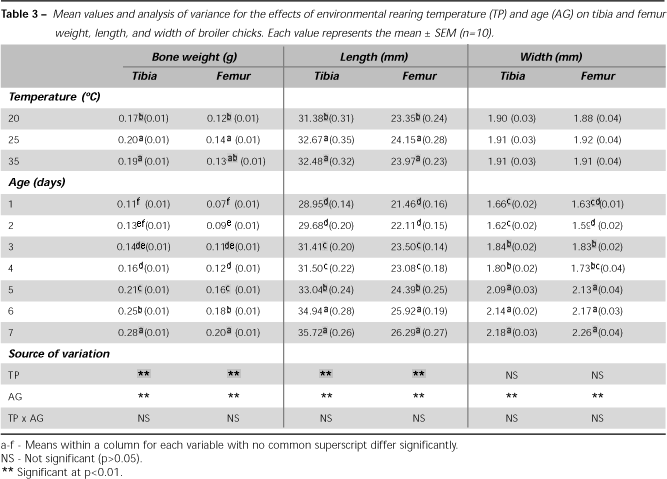The objective of the present study was to assess the development of broiler chicks during the first week post-hatching when reared at three different environmental temperatures. A total of 480 day-old chicks were placed in three environmentally controlled rooms (20, 25 and 35°C) from 1 to 7 days of age. Body weight gain, feed and water intake, as well as liver, gizzard, heart, yolk sac and bursa of Fabricius weights were measured daily. Tibia and femur bones were weighed and their length and width (medial diameter) were also obtained. The chicks reared at 20º C had lower weight gain and ingested less food than chicks reared at 25°C and less water than chicks kept at 35°C. Relative weights of the liver, heart, and gizzard were affected by environmental temperature, whereas yolk sac and bursa of Fabricius relative weights were not. The data showed that all bone parameters increased with bird age. Environmental temperature did not affect tibia or femur width, however a significant increase in bone weight and length occurred with increasing environmental temperature. These results indicate that brooding temperature of 20°C during the first seven days post-hatching was stressful decreasing broiler bone development and reducing chicks body weight.
Body weight; bone growth; chicks; environmental temperature; viscera





